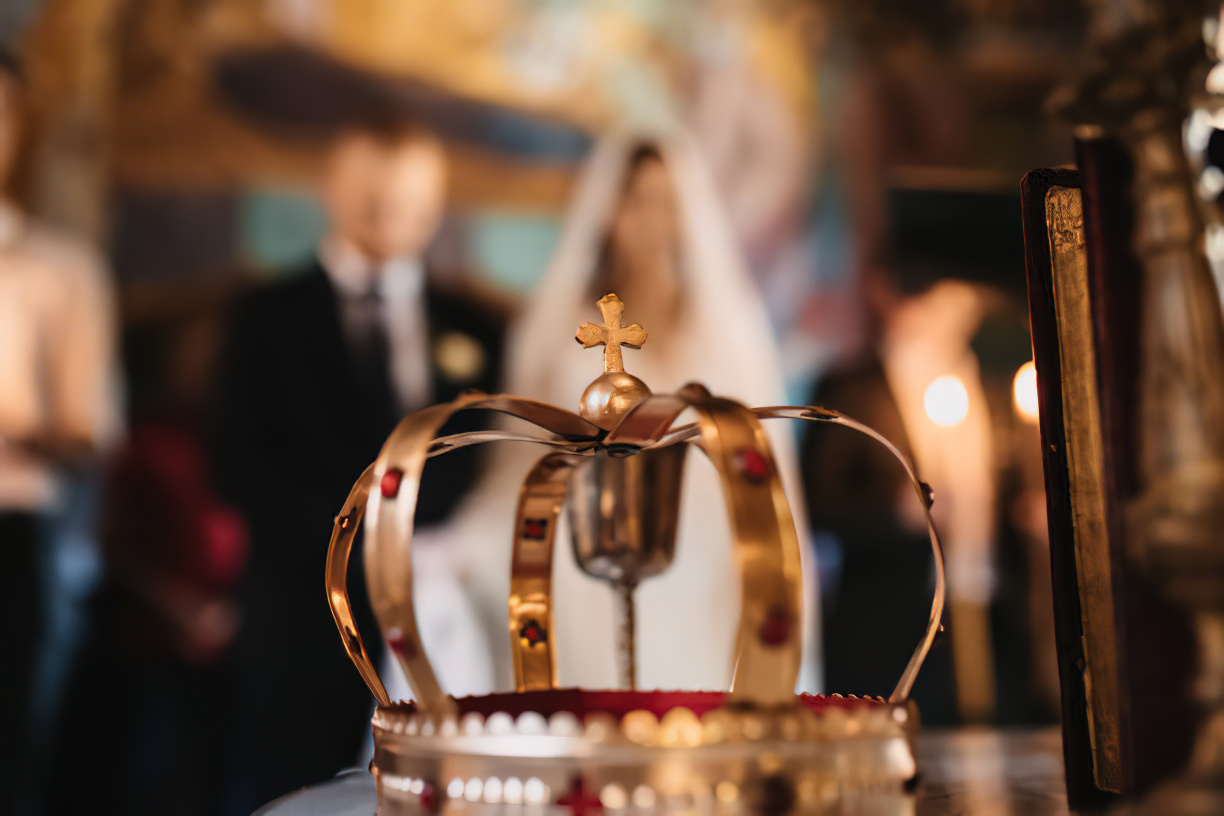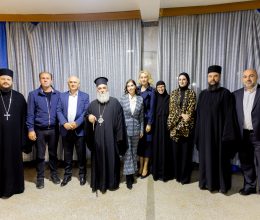Living in the world and in our time, observing the events that unfold today, bearing witness to the disturbances, the unrest, and the insecurities that exist, a question frequently comes to mind and heart – what kind of family, indeed, do we desire today, and what kind of family should we aim for?
This reflection arises from our experiences, from what happens to us, from the challenges we face in our homes, from the difficulties encountered in our interpersonal relationships within the family, from the often-present communication barriers within our own household, from the strained relationships that couples frequently experience, and from the challenges in communication most often with our children. And ultimately, the question is: what kind of family do we want? What kind of family are we striving for? And have we considered how we shall attain it? But let us examine things from the beginning.
The family is founded in the holy sacrament of Marriage, a reality we live within the Church. Two individuals who love each other come together to graft their human love onto the divine graft. For the life of the Church, Marriage is a mystery of love. Whose love? The love of God towards man, the love of a man towards a woman and of a woman towards a man, the loving relationship between persons.

Where the nurturing of their mutual love and fidelity becomes a “yes” to the nobility towards Christ the Giver. However, let us delve a bit into these matters, the love of God towards man. This is the love that creates man. It is the love of God, which comes to unite the two people. It is the love of God, which leads man to completeness. We will soon discuss this concept further. The love of God offered to become the cohesive bond in the relationship between two people.
God’s love, which in the holy sacrament of Marriage comes to offer one to the other, for each to become the crown and glory of the other. God’s love, which is present and should always be present in the life of the spouses.
Now regarding the love of man towards God. About the love of man towards God in general. Because it is a reference for man, it is his ideal, it is the source of his life. To the love of God that creates man, man responds with his love towards God, wishing His grace to sustain his entire human existence, to give meaning to life, and to beautify everything in life. The love of man towards God, which is a natural reference of his life to its beginning, to the prototype.
The love of a man towards a woman and of a woman towards a man. There can be no marriage without this love, without this eros from one towards the other. This desire of each to live and share their life with the other. It is important that this love be genuine. It is crucial that it is not merely a fleeting impression. It is essential that it is not selfishness in place of love. Love that leads everyone to come out of themselves, to meet the other. Which encourages everyone to empty their existence, to fill up with the presence of the other. This love that becomes a reason for one to be the joy of the other, not a torment.
The loving relationship between persons is the foundation of true marriage. This loving relationship comes to receive the Holy Spirit and to graft it onto the life of Christ, offering them not love as a human emotion, but love as the first fruit of the Holy Spirit. Namely, to take what is mortal and corruptible and to graft it onto the divine and immortal. To make the love between persons as strong as death, and in this perspective, the relationship opens towards the Holy Trinity. Because for the one who accepts the other as a gift from God, then their mutual fidelity and love becomes a “yes” to gratitude towards the Giver Christ. That is the reality. Such is the nature of things.
What is the purpose of marriage? Simply put, it is the nurturing and deepening of the mystery of love. Marriage is not something transient, nor given. It is a goal. It begins to reach the fullness of the relationship, a relationship that ultimately completes itself in the Kingdom of God. In the service of the holy sacrament of Marriage, we pray for the spouses and for their salvation. This salvation has two dimensions, vertical and horizontal. The verb to save means to become preserved, to become whole.
Man was created by God as male and female.
The phrase: “created in the image of God” – in the singular, human, “male and female He created them,” is of paramount importance. This unity divides into two. Human nature is androgynous (male-female), and in the unity of the two lies the completeness of human nature, as it was created by God. In this union of marriage, each seeks the other, the one through whom they are completed. They become whole, become healthy, and find again their lost completeness. It is no coincidence that in the history of our people remains the phrase “the other half.” Thus, the two halves make a whole, a human with androgynous nature.
On the other hand, there is the vertical dimension, where a person becomes whole and fulfilled when in communion with the source of their life – with God. The divine-human nature is complete because it is in communion with God, the created through communion with the Uncreated surpasses its createdness. The mortal, by communing with the Immortal, overcomes its mortality. Thus, in the mystery of marriage, in the love of God for man, and of man for man, of a man for a woman, a person attains the possibility to reach both horizontal and vertical completeness.
These are not independent of each other, but one arises from the other, one is inspired by the other. Human love is inspired by divine love. And when a person insists and strives to see the other person as an icon of God, as a gift from God, then this completeness in both dimensions is what is experienced in the family, in the relationship between spouses.
(from the book: “Problems in Education”)















